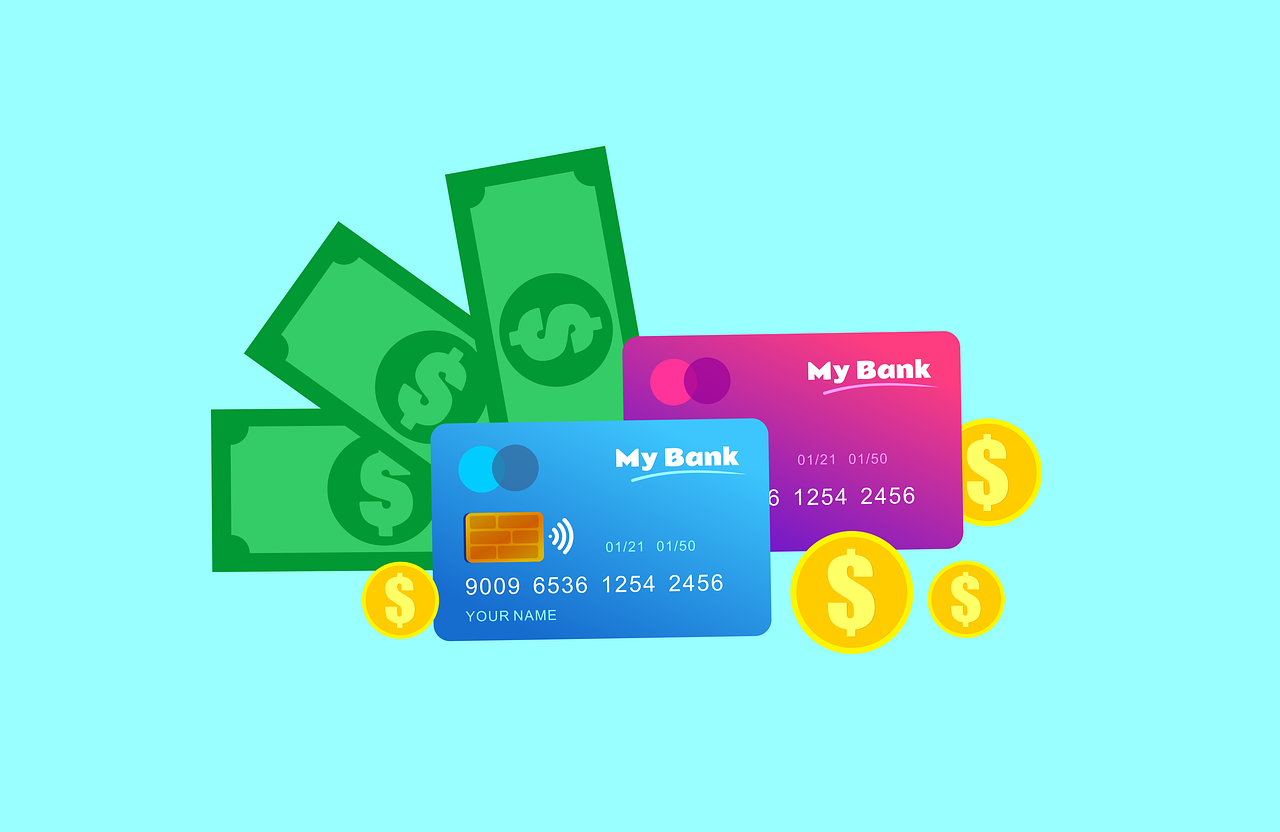In a nutshell, credit cards are a double-edged sword: you love the convenience and security as well as a great chance to have a good credit record. On the other hand, it’s said that it lets you get caught up in a vicious circle of debt, from which you may not easily come out.
The easy acquisition of credit card debt may be characterized by high interest rates and hidden charges in the short run but becomes a burden in the long run.
Here, we are going to talk about some of the dangers of credit card debt and present some workable tips on how not to incur it so that you will find it easy to use credit cards in a shrewd manner and in accordance with proper financial discipline.
Understanding Credit Card Debt
Technically, that is credit card debt because the money in this case will not be paid in one month in order to remove the balance at the end of a cycle but will go in as a constant balance on the credit card from one month to another. But, at the same time, a credit card is very useful in terms of managing cash flow or making a big-ticket purchase. However, when you have to carry balances and then eventually some interests start charging on those balances, it starts becoming problematic.
Most credit cards also sport high annual percentage rates, meaning that even a small balance can quickly snowball into debt of note.
Do You Know? The average credit card interest rate in America is about 20%. With that rate, small balances begin raking in their share of those substantive interest charges over the years.

The Dangers of Credit Card Debt
- High interest rate coupled with compounding interest: credit card debt’s biggest threat, of course, is the high interest rate that has company with it. This creates a paradox wherein when you cannot pay the full balance, the remaining amount acquired interest. Although seemingly harmless in the beginning, interests charges over time will accumulate to compound into an ever-higher interest-bearing principal balance amount whereby you are paying interest on interest. That makes it very tough to pay off your debt since so much of your payment goes towards the interest, rather than the amount that is lent out.
- Personal Experience Insight: I have friends who begin with a balance of $1,000. If they’re not paying anything above the minimum payment, the high interest rates push their balance up to $3,000 within the year.
- Credit Score Harm: The third thing you should be aware of is the importance of your credit utilization ratio-your balance versus available credit. You want to keep that number at 30% or less. Higher balances on any credit cards drive up the utilization ratio and will begin to drag your score down. All your loan application activities will be affected by a bad credit rating, as well as favorable interest rates; it even affects employment prospects as some companies go ahead to look for a credit report of an individual as part of the hiring process.
- Minimum Payments Trap A staggering number of credit card companies actually charge minimum payments as a shockingly small percentage of the total amount-that is, sometimes 2-3%. That may sound like good news because it sounds like a relief. But what it really means is that you will pay over decades the same money borrowed. And while paying, you would be repaying good amounts of interest-mostly more than you borrowed originally.
- Fact: It will take over 30 years to pay the credit card debt of $5,000 if you solely pay the minimum on a credit card with a 20% interest rate.
- It leads to acute and chronic stress and anxiety. The fear of not having money to pay that next payment, the anxiety of that creditor’s next call, or the reality of long-term debt can lead one down a trail of psychological deterioration. Stress, in all its directions related to relationships, workplace, and well-being at large, is spread.
- Risk of Bankruptcy: Worst case, you’ll go bankrupt because of excessive debt coming from credit card use. Bankruptcy has long-term very severe implications, such as a drastic lowering of your credit score, and it makes you less attractive to the lenders, while securing loans or credits, up to rent an apartment. Bankruptcy reflects on your credit report up to 10 years, hurting you in the future financially.

How to Avoid Credit Card Debt
The process of getting out of debt by using a credit card is usually considered discipline and planning. This often involves keeping accounts up to date, checking everything, and applying that to a proactive approach in your finances. Here are some of the most effective strategies for steering clear of credit card debt:
- Create a Budget and Stick to It: All good financial management boils down to the budget. This first involves creating an account of what you make and where it all’s going. Note a certain amount for discretionary spending and hold to it. Living within your means keeps unnecessary credit-card spending at bay while keeping your finances in check.
- Personal Experience Insight: I feel that over the past I did it un-consciously, which is at the end of every month, I would start overspending. Then begin identifying where I was overspending and reduce that by budgeting it. In a way, that helped me from becoming credit card dependent.
- Paying the balance in full every month: The only way you would never see any credit card debt at all is by paying the balance in full every month. This way, you will avoid interest charges which seem to pile up and quickly leave you swimming in debt. So if you cannot pay your balance in full, look to pay more than the minimum allowed on the credit card account so that you chop down the balance as fast as possible, thereby reaping minimal interest charges.
- Do not use your credit cards for every little mundane expense: This is all right, especially in case you are earning rewards on your credit card for the purchases, but this also catches you vulnerable to debt in case you are not paying off the balance on or before the due date. The usage of cash or debit cards for everyday purchases will really help check your spending and avoid gifting yourself the opportunity to go overboard on overspending.
- Automatic Payments: Late payments always attract late fees and interest, which pile up as debt. At least schedule some minimum amount for an automatic payment so one never misses the due date. It helps them avoid late fees and secures your credit score.
- Limit the Credit Cards You Have: Tempting as it may be having many credit cards might really prompt you to spend more while really hard for you to manage track due dates and balance on account. Limit your credit cards to one or two and stress more on managing these two credit cards more responsibly. This way, you will be in control of spending and decrease the chance of amassing debt.
- Emergency Fund Create an Emergency Fund: The great emergency fund grows by saving for events which may require you to have money for things you don’t expect, such as medical expenses or car repairs when changing jobs. You’ll be tempted to go into debt by using credit cards unless you save at least three to six months’ worth of living expenses in a savings account easily accessible in case of an emergency.
- Use your credit card only to buy planned: You should never use your credit card for impulse buying. Always ensure that you are using it for those purchases that you are planning in your budget. Be sure not to go around spending on things that you don’t need to, and you should always pay out the balance every time your bill arrives. It is indeed possible to accrue rewards and cashback on your account without finding yourself at risk of debt by using your credit card on planned purchases.

Additional Tips for Managing Credit Card Debt
- Negotiate to get a better interest rate on a particular credit card: If you’ve accumulated a big credit card balance, call your credit card company and attempt to negotiate a better interest rate. What a difference it can make in the length of time before getting out of debt and in the dollar amounts of interest charged over the life of the loan.
- Consolidate balances to a card with lower interest rate: If you have balances multiple on high-interest credit cards, you will need to consolidate those balances to lower-interest cards, or even 0% introductory APR balance transfer so that you spend less in interest and are paying more to your debt. Just don’t forget about the fees for balance transfers for moving so you know that, indeed, by doing such, you save some real money.
- Example: Consolidation Loan Pay off several credit card balances, combined into a single loan with only one monthly payment, hopefully at a lower rate of interest. That will help you simplify your payoff and save you interest in the long run-but avoid racking up new credit card debt later.
- Seek Expert Advice: If you are not able to pay off your credit card bills, then possibly seeking the help of a credit counseling agency is the best course for it. An expert credit counselor will help you prepare an action plan on what will be done to help you out with debt management, bargaining with creditors, and education on how to avoid getting into such kind of trouble in the future.

How We Gained These Insights
We have been into the trenches with people mired with credit card debts. We have seen firsthand what it brings, how it knocks on lives. From these real-world encounters, we have observed how slight changes in the spending activities could significantly improve financial conditions.
Being practitioners and keeping ourselves abreast of contemporary trends in finance, we wrote this guide for practical, plain-speaking advice to share with you.
We will instruct and equip you in every information and arm with which to make wise credit card-using decisions and therefore keep you out of the debt trap, once and for all. We’ll direct you to be in the driver’s seat in your financial life and to make wise, great choices that are going to avoid credit card debt.
Conclusion
Credit card debt is probably one of the most common financial problems and will bring very dire negative consequences if not managed properly. Usually, it refers to being alert to potential pitfalls and knowing smart strategies to apply towards credit cards so that one doesn’t incur unnecessary debt.
Remember that self-discipline, planning, and proactivity for good health finance are what give you a way out from falling into the trap of credit card debts. These tips can benefit you in all aspects with respect to having a credit card, even if it just means keeping track of your finances.


Leave a Reply